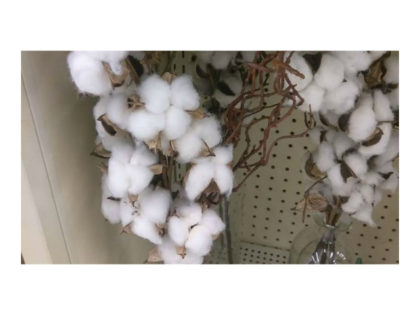China Begins Replacing Uyghur Slave Cotton with Taliban Cotton
China signed a deal to import $25 million in Afghan cotton, providing income to the Taliban and muddying China’s cotton supply lines.

China signed a deal to import $25 million in Afghan cotton, providing income to the Taliban and muddying China’s cotton supply lines.

The House Select Committee on the Chinese Communist Party on Thursday warned there is an “extremely high risk” of encountering products made by slaves when shopping with two popular Chinese fast-fashion brands: Shein and Temu.

Chinese customs data reviewed by the South China Morning Post (SCMP) on Tuesday showed exports from the Xinjiang region to the United States nearly tripled year-on-year in September 2022, despite tougher scrutiny for forced labor imposed by the Uyghur Forced Labor Prevention Act (UFLPA).

The Chinese government released export data on Thursday that purportedly showed clothing shipments from Xinjiang province surging to their highest level in two years in July, even though a tough new U.S. law barring goods tainted with forced labor from the Uyghur Muslims took effect in June.

The government of China announced it would make a large purchase of cotton from occupied East Turkistan for its reserves, an apparent desperate measure in light of the implementation of an American law banning slave-made products from the region.
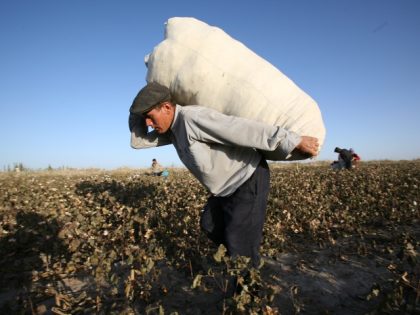
China’s state-run Global Times on Tuesday railed at length against the alleged “unilateralism, protectionism, and bullying” of America’s Uyghur Forced Labor Prevention Act (UFLPA) – but also admitted the law is working as intended, even before it officially went into effect on Tuesday.
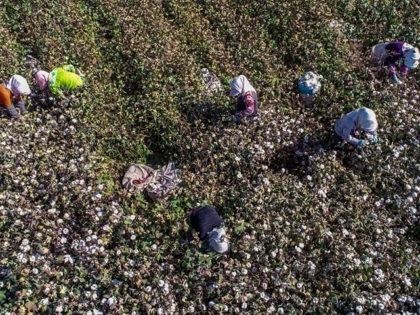
Tuesday marked the implementation of the Uyghur Forced Labor Prevention Act (UFLPA), which passed Congress last year and was signed into law by President Joe Biden in December 2021.

LGBTQ+ organizations have been silent after the revelation that Disney’s “Pride Collection” fashion line was manufactured in China, a country whose government regards homosexuality as a mental disorder and harvests much of its cotton supply using slave labor.

France is investgating four fashion companies for the alleged use of slave labour in the Xinjiang region of China.
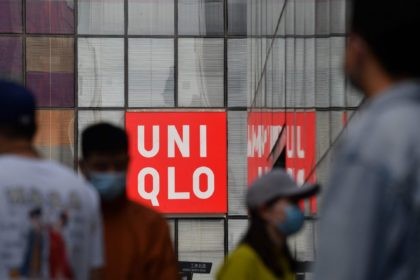
Chinese cotton industry groups launched a campaign Thursday to “build a homegrown independent sustainable standard and certification system” to shirk condemnation from the systems that exist internationally in response to evidence of widespread use of slave labor to pick cotton in China.

The Chinese Communist Party (CCP) renewed its sharp-power attack on Swedish apparel firm H&M on Wednesday after the clothier restated its vow to avoid using cotton harvested with forced labor by the oppressed Uyghur Muslims of Xinjiang province.

German fashion house Hugo Boss assured its Chinese buyers on Thursday that it will continue to “purchase and support” Xinjiang cotton, a product of Chinese state-supported slave labor by Uyghurs and other Muslim ethnic minorities, extensive reporting has revealed.

A Chinese state propaganda war against Western companies launched this week continued Friday with the announcement of dozens of Chinese regime-approved celebrities canceling sponsorship deals with brands that oppose the use of Uyghur slaves to pick cotton.

Chinese state media outlets, the nation’s Foreign Ministry, and Communist Party-controlled social media launched a multi-pronged attack Wednesday against the multinational apparel corporation Nike following the discovery of a statement claiming the company does not use cotton sourced from Xinjiang.
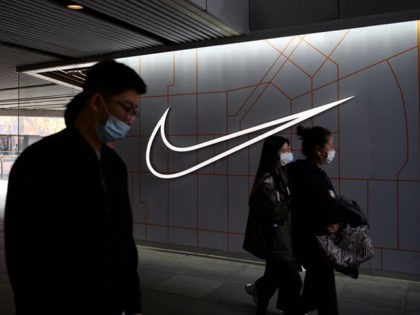
U.S. Customs and Border Protection (CBP) announced Wednesday that it would not allow any cotton or tomato products from Xinjiang, China’s westernmost province, into the country due to the high likelihood that they were produced by slave labor.
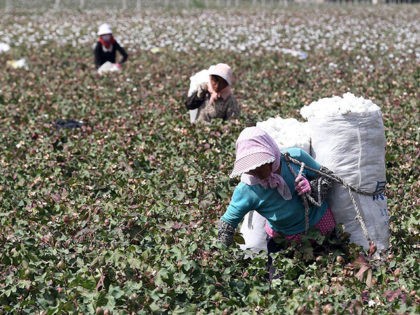
A study published Monday by researcher Dr. Adrian Zenz revealed that the Communist Party of China has forced over half a million mostly ethnic minority residents of Xinjiang, China’s westernmost province, into the arduous cotton picking industry as part of a supposed “poverty alleviation” program.

A Texas farmer who died at the age of 49 from the coronavirus left behind his loving family, friends, and a cotton crop.
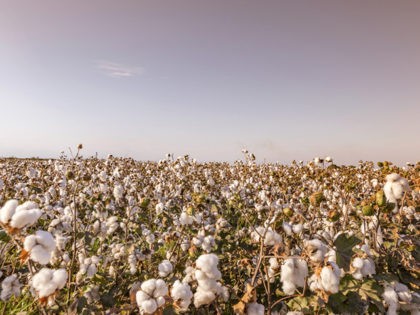
Several Republican senators, led by Sen. Marco Rubio (R-FL), are introducing legislation to go after big banks in the United States who strip services from federal contractors, like those denied services for working with the Immigration and Customs Enforcement (ICE) agency.

The China National Space Administration has announced a second “first-ever” in space exploration on Tuesday as tiny sprouts sprang up from cotton seeds taken on a spacecraft that made a successful maiden journey to the far side of the moon this month.
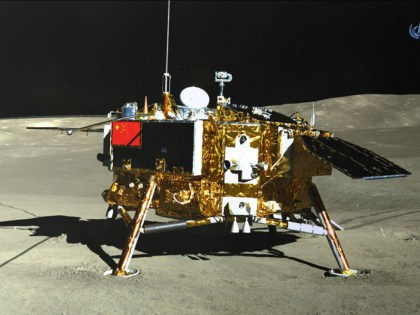
Sen. Tom Cotton (R-AR) says the Democrats are less likely to attempt to shut down the federal government this month in order to demand amnesty for illegal aliens “given how badly they misjudged” the lack of support for such an effort last month.

Populist conservative Sen. Tom Cotton (R-AR) is firing back after being attacked by pro-amnesty Sen. Lindsey Graham (R-SC), saying the American people voted for “Donald Trump’s vision of immigration policy.”
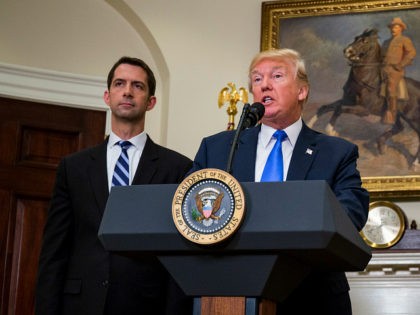
Tom Cotton’s strong influence over the national debate on immigration policy and the Trump administration has left Chuck Schumer unwilling to broker an immigration deal unless the populist conservative Senator is left out of the conversation.

If there’s one thing America’s cotton farmers pray for more than rain, it’s a safety net–just like every other U.S. agricultural commodity.
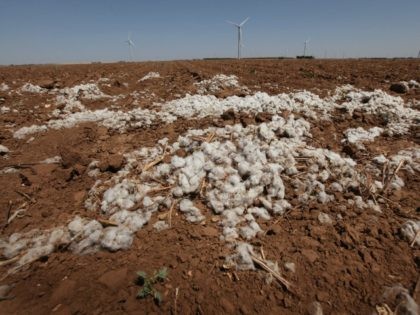
Sen. Tom Cotton (R-AR) says that if a mass amnesty plan were as popular as the mainstream media purports it to be, Democrats would have used a year-end spending bill to shut down the government unless they got amnesty for millions of illegal aliens.

Sen. Tom Cotton (R-AR), says it is “not a ‘nativist view” to want a national immigration policy that benefits American citizens.

A Texas woman who said a Hobby Lobby store’s decision to display a vase containing cotton stalks is insensitive toward blacks is gaining attention on social media.
